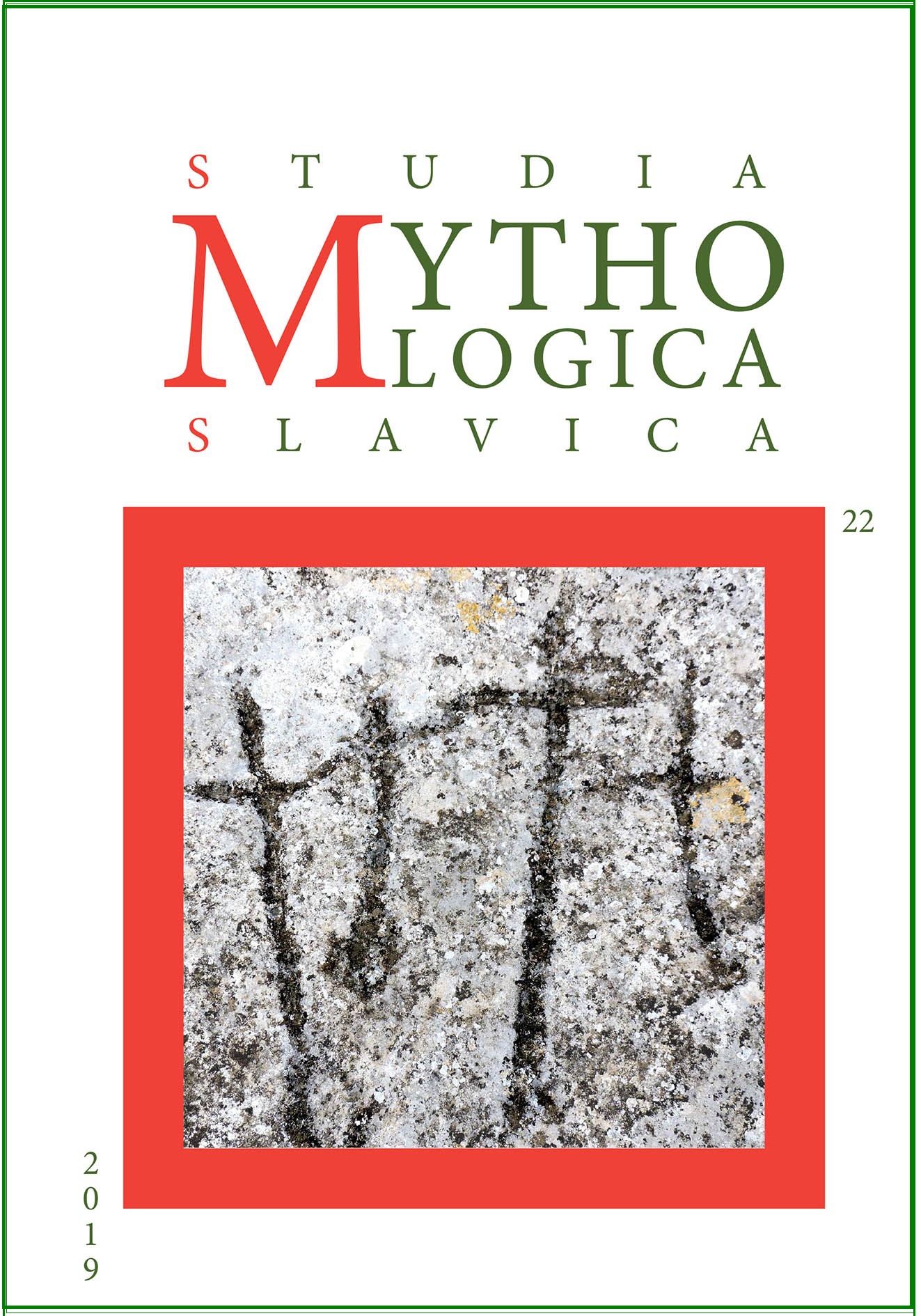Rugian Slavic God Sventovit – One More Time<br>Rugijski slovanski bog Sventovit – ponovno</br>
DOI:
https://doi.org/10.3986/SMS20192202Ključne besede:
Sventovit, Slavic mythology, religion, Polabians, Rugen IslandPovzetek
This paper critically analyses and discusses two recent re-interpretations of the name of the Slavic god known as Sventovit. This deity was worshipped on Rügen Island, on Wittow Peninsula, at a locality called Arkona. The temple of Sventovit, with his four-headed statue, stood there on the cliff there in the Middle Ages until its destruction by the Danes in 1168/9. The paper explores an article by Michał Łuczyński published in the Polish journal Ling Varia in 2015, and a chapter on Sventovit in the book by Judith Kalik and Alexander Uchitel, titled Slavic Gods and Heroes, which was published by Routledge in 2018, in the USA and UK. In his work, Łuczyński postulated that root-stem -vit in the name of a deity is, in fact, a suffix -ovit implying its attributive character. The paper argues for a widely accepted explanation that root-stem -vit derives from the Slavic vitędzь, denoting warrior, hero, freeman, lord, master or ruler. In their book, Kalik and Uchitel argued that the name “Sventovit” was a corrupted form of the name of the Christian Saint Vitus. This article challenges this notion, arguing that the deity’s name Sventovit has nothing to do with Saint Vitus.Prenosi
Podatki o prenosih še niso na voljo.
Prenosi
Kako citirati
Zaroff, R. (2019). Rugian Slavic God Sventovit – One More Time<br>Rugijski slovanski bog Sventovit – ponovno</br>. Studia Mythologica Slavica, 22, 37–54. https://doi.org/10.3986/SMS20192202
Številka
Rubrike
RAZPRAVE / ARTICLES
Licenca
Avtorji jamčijo, da je delo njihova avtorska stvaritev, da v njem niso kršene avtorske pravice tretjih oseb ali kake druge pravice. V primeru zahtevkov tretjih oseb se avtorji zavezujejo, da bodo varovali interese založnika ter da bodo povrnili morebitno škodo.
Podrobneje v rubriki: Prispevki





